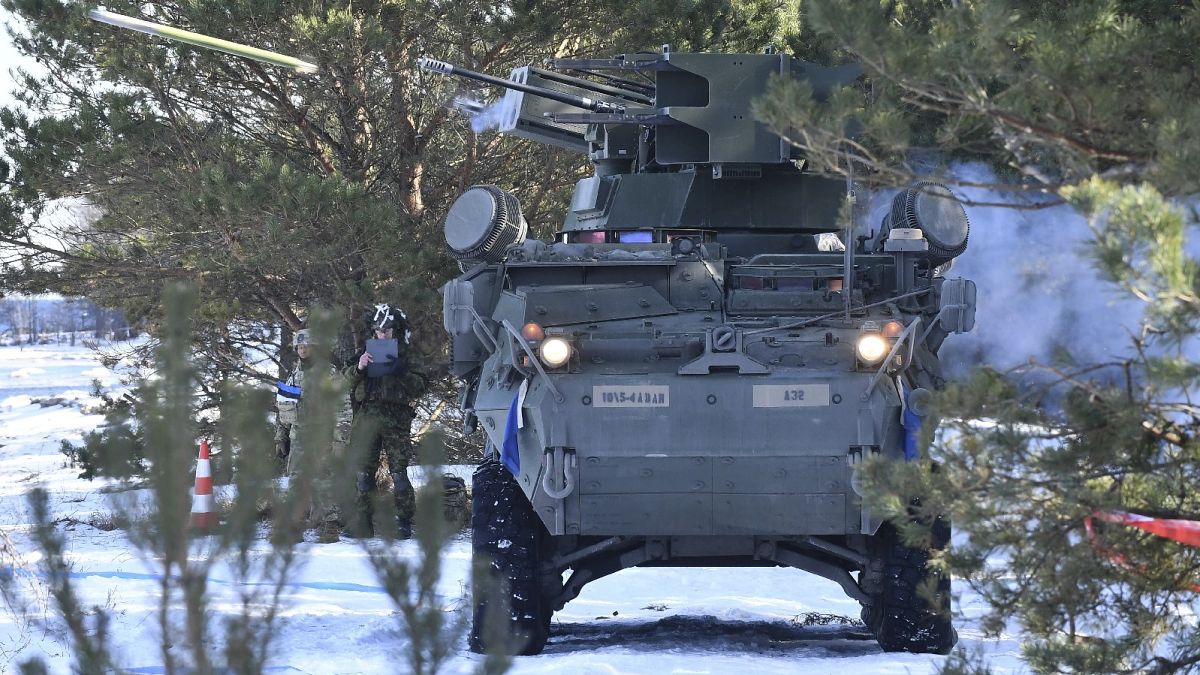Europe
Industry chiefs on what Europe needs to ramp up defence production

Europe’s Defence Industry Ready to Ramp Up Production, but Governments Must Act Faster
Europe’s defence industry is standing ready to boost production to strengthen the continent’s security, but it urgently needs governments to streamline and accelerate their procurement processes. This was the key message from top executives at Kongsberg, a Norwegian defence giant, in an interview with Euronews. As the European Union (EU) undergoes a major overhaul of its defence strategy, leaders are grappling with how to allocate €500 billion over the next decade to modernize military capabilities and address critical gaps exposed by the conflict in Ukraine. Neighbouring countries, including the UK and Norway, are also rethinking their defence strategies in light of the changing global security landscape.
At the heart of the EU’s defence priorities are air defence systems and ammunition, both of which have become even more urgent following the bloc’s failure to meet its pledge of delivering one million rounds of ammunition to Ukraine within 12 months. Eirik Lie, President of Kongsberg Defence & Aerospace AS, emphasized that the company is not the bottleneck in producing air defence systems. “We can produce two NASAMS batteries per month,” Lie explained, referring to the Norwegian Advanced Surface-to-Air Missile System, which is widely used by NATO countries. “The problem lies in securing long-lead items and ensuring the supply chain can deliver these components on time.”
Long-lead items, which are critical components requiring extensive production time, can take up to a year to source. This makes it essential for defence companies like Kongsberg to have early visibility into upcoming contracts. Lie highlighted that countries like Norway and the US have adopted a proactive approach by ordering these items months before finalizing procurement contracts, allowing manufacturers to start production earlier and reduce delivery times. However, many EU countries lag behind in adopting such forward-thinking practices.
Kongsberg, which boasts an impressive €4.35 billion in operating revenues for 2024 and a record order backlog of €11.39 billion, has secured significant contracts with Spain, Lithuania, and the Netherlands for air defence systems. Despite its success, the company is urging governments to simplify acquisition processes, aggregate orders, and provide long-term visibility. This not only benefits large defence contractors but also smaller suppliers in the chain, many of whom struggle to secure financing to scale up production.
Another pressing challenge for the industry is diversifying supply sources for critical raw materials. The NATO military alliance recently identified 12 key materials, including lithium, gallium, and germanium, which are essential for advanced defence technologies. China currently dominates the mining and processing of many of these materials, raising concerns about potential disruptions to supply chains. While Kongsberg does not foresee an immediate crisis, Lie warned that this remains a significant risk for the future, stressing the need for vigilance and strategic planning.
Finally, Kongsberg’s CEO, Geir Håøy, called for increased investment in innovation, particularly in leveraging civilian technologies to speed up production and reduce costs. By militarizing commercially available technologies, Europe can not only enhance its defence capabilities but also achieve greater standardization across systems, a key priority for NATO allies. Additionally, Håøy underscored the importance of advancing autonomy and Artificial Intelligence (AI) in defence, which he believes will revolutionize the battlefield by enabling faster decision-making for troops.
The European Commission is set to release its highly anticipated White Paper on Defence on March 19, outlining the EU’s investment priorities and funding strategies. With leaders expected to make key decisions at a summit in late June, the pressure is on for governments to act swiftly and smartly to address these challenges. As Kongsberg’s executives made clear, the defence industry is ready to deliver, but it needs the right support and foresight from policymakers to ensure Europe’s security in an increasingly uncertain world.


















